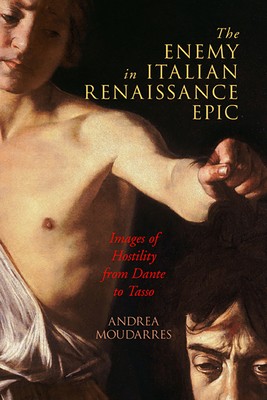
- We will send in 10–14 business days.
- Author: Andrea Moudarres
- Publisher: University of Delaware Press
- ISBN-10: 1644530007
- ISBN-13: 9781644530009
- Format: 15.2 x 22.9 x 1.9 cm, kieti viršeliai
- Language: English
- SAVE -10% with code: EXTRA
Reviews
Description
In The Enemy in Italian Renaissance Epic, Andrea Moudarres examines influential works from the literary canon of the Italian Renaissance, arguing that hostility consistently arises from within political or religious entities. In Dante's Divina Commedia, Luigi Pulci's Morgante, Ludovico Ariosto's Orlando Furioso, and Torquato Tasso's Gerusalemme Liberata, enmity is portrayed as internal, taking the form of tyranny, betrayal, and civil discord. Moudarres reads these works in the context of historical and political patterns, demonstrating that there was little distinction between public and private spheres in Renaissance Italy and, thus, little differentiation between personal and political enemies.
Published by University of Delaware Press. Distributed worldwide by Rutgers University Press.EXTRA 10 % discount with code: EXTRA
The promotion ends in 22d.23:05:23
The discount code is valid when purchasing from 10 €. Discounts do not stack.
- Author: Andrea Moudarres
- Publisher: University of Delaware Press
- ISBN-10: 1644530007
- ISBN-13: 9781644530009
- Format: 15.2 x 22.9 x 1.9 cm, kieti viršeliai
- Language: English English
In The Enemy in Italian Renaissance Epic, Andrea Moudarres examines influential works from the literary canon of the Italian Renaissance, arguing that hostility consistently arises from within political or religious entities. In Dante's Divina Commedia, Luigi Pulci's Morgante, Ludovico Ariosto's Orlando Furioso, and Torquato Tasso's Gerusalemme Liberata, enmity is portrayed as internal, taking the form of tyranny, betrayal, and civil discord. Moudarres reads these works in the context of historical and political patterns, demonstrating that there was little distinction between public and private spheres in Renaissance Italy and, thus, little differentiation between personal and political enemies.
Published by University of Delaware Press. Distributed worldwide by Rutgers University Press.

Reviews